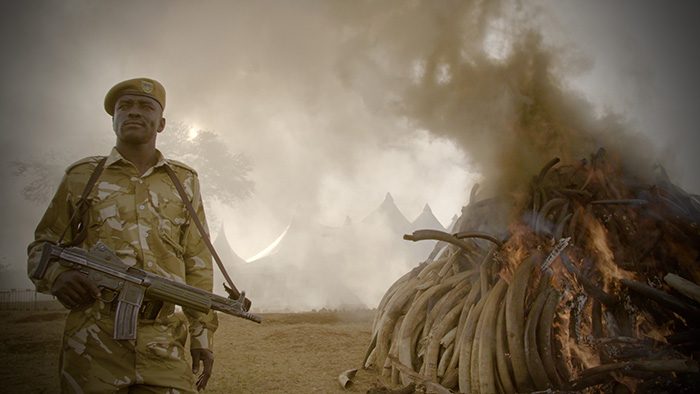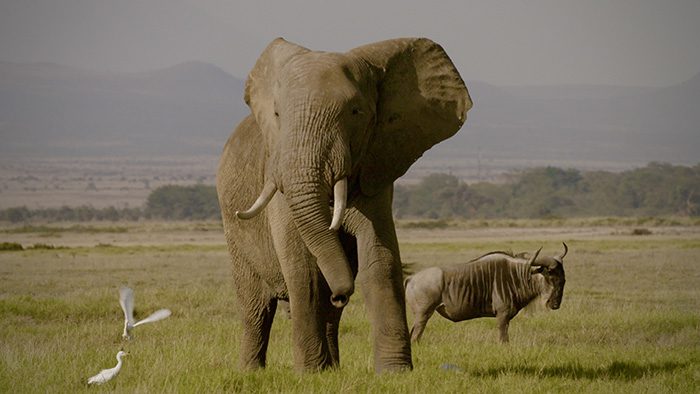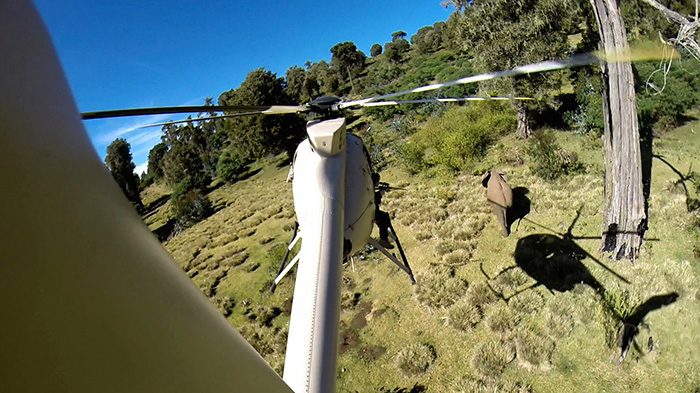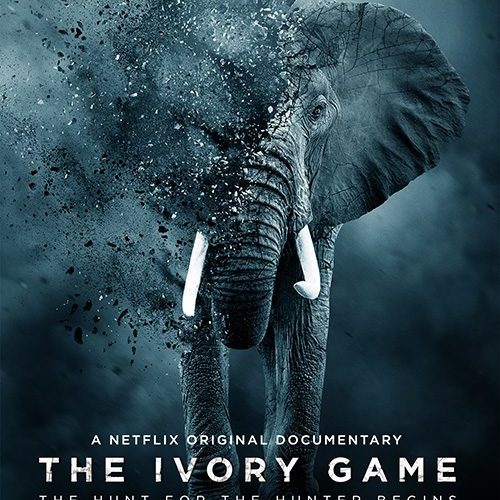If you went to a Regal Cinema during the month prelude to The Legend of Tarzan‘s release you will know the insane statistics depicting the sharp decline of living elephants throughout the world. Alexander Skarsgård told us about the problem — although I’d be surprised if you weren’t cognizant of the issue, if not the prevalence, beforehand — and the pitch to donate money for their conservation was in full force. Well, Netflix has taken the next step to ensure an even wider range of people acknowledge what could be mass extinction in just fifteen years thanks to their new documentary executive produced by Leonardo DiCaprio. But don’t think Kief Davidson and Richard Ladkani‘s The Ivory Game is just an all-educational sound-byte-fueled heartstring tug. This thing is feet-on-the-ground investigative journalism.

Their story follows three main activists doing what they can to save the animals as well as expose the corruption involved thanks to a legal trade system set-up in China for dealers to exploit and launder ill-gotten gains. We follow Big Life Foundation’s Craig Miller as he searches for carcasses and the poachers who left them in the desert; Wildleaks founder Andrea Crosta working on Tor to filter whistleblower intelligence and lead covert operations to document criminal acts himself; and Tanzania Task Force leader Elisifa Ngowi as he roams East Africa to hunt down the elusive “Shetani,” a ringleader earning his nickname “The Devil” by employing mercenaries and being responsible for the deaths of 10,000-plus elephants himself. Will this trio find victory? Will this genocide ever cease?
Along with them are Zambia Wildlife Authority agent Georgina Kamanga tracking Shetani down to her country despite poaching never having been an issue there — the hunting area is always expanding as populations thin — and Chinese activist/journalist Hongxiang Huang doing his best to return a modicum of humanity to his nation’s part in this violent business. His is the most intriguing trajectory because he ultimately proves to be a key piece to the investigation by being exactly what these African murderers crave. The simple fact that Hong is Chinese puts them at ease because their goal is to find an emissary to smuggle the ivory to the Pacific and earn their cut. One look at him and they admit everything under the guise of like-minded interests.

We therefore get to see real sting operation footage of both Africans sharing how many kilograms they have lying in stockpiles and Chinese explaining the loopholes they’re able to circumvent to keep money rolling in. Some of these characters are brash loudmouths and others homicidal maniacs willing to kill to keep their freedom. The places Craig goes are dangerous because poachers will shoot him if he gets in the way of a tusk, but Hong, Crosta, and a future contact codenamed “Omega” are going places blind with hidden cameras that could seal their deaths without witnesses. This is what happens with every illicit multi-billion dollar industry. Whether cocaine, heroin, or ivory, the profit margins are too high not to take the risk as criminal or police.
But while this is the stuff drawing audiences in via action and suspense, I’d be lying if I ignored how interesting the logistics prove behind the scenes. There are political factions in play as well as economic ones. Safe havens are set up in Vietnam as well as Hong Kong where bribes keep prying eyes from stopping smugglers from doing their jobs. And the sad truth as explained in voiceover is that everyone involved wants elephants to disappear. Poachers sit on their spoils for years because their value increases with each elephant’s death. This is supply and demand. If no more ivory can be poached, you only have one supply chain left. So while governments destroying confiscated goods seems victorious, it too adds to the product’s market scarcity.

Davidson and Ladkani do a great job juggling the three paths they focus on by letting Craig show elephants in their natural habitat (and the dangers faced by farmers protecting their land and unwittingly becoming poachers themselves); Ngowi provide context for law enforcement’s drive to seek out those responsible for so many senseless murders; and Crosta expose the trail of raw ivory to China where it’s sculpted, painted, and packaged for mass consumption internationally to the tune of hundreds of thousands of US dollars a piece. Each thread escalates in stakes as they advance and each finds a result that will introduce a slim chance of optimism where little ever truly exists. They’re fighting the good fight, but sometimes that isn’t enough without powerful friends in high places.
With that, The Ivory Game sprawls further to include Prince William, President Obama, and Chinese government officials playing crucial roles in these elephants’ lives. But even if they do everything correctly, the onus falls on heinous characters like Shetani to realize the ends no longer justify the means. Dismantling the legal ivory trade will push poachers further onto the black market until they’re using Tor as much as Wildleaks for the opposite reasons. As long as someone’s buying, they’ll be selling. So while the movie provides common sense scenarios, its success lies in putting faces to the issue. It highlights heroes and villains to transform abstract numbers into human beings. That power trumps any lack of cinematic brilliance because this type of documentary seeks exposure and potential hope.
The Ivory Game hits limited release and Netflix streaming on November 4.

